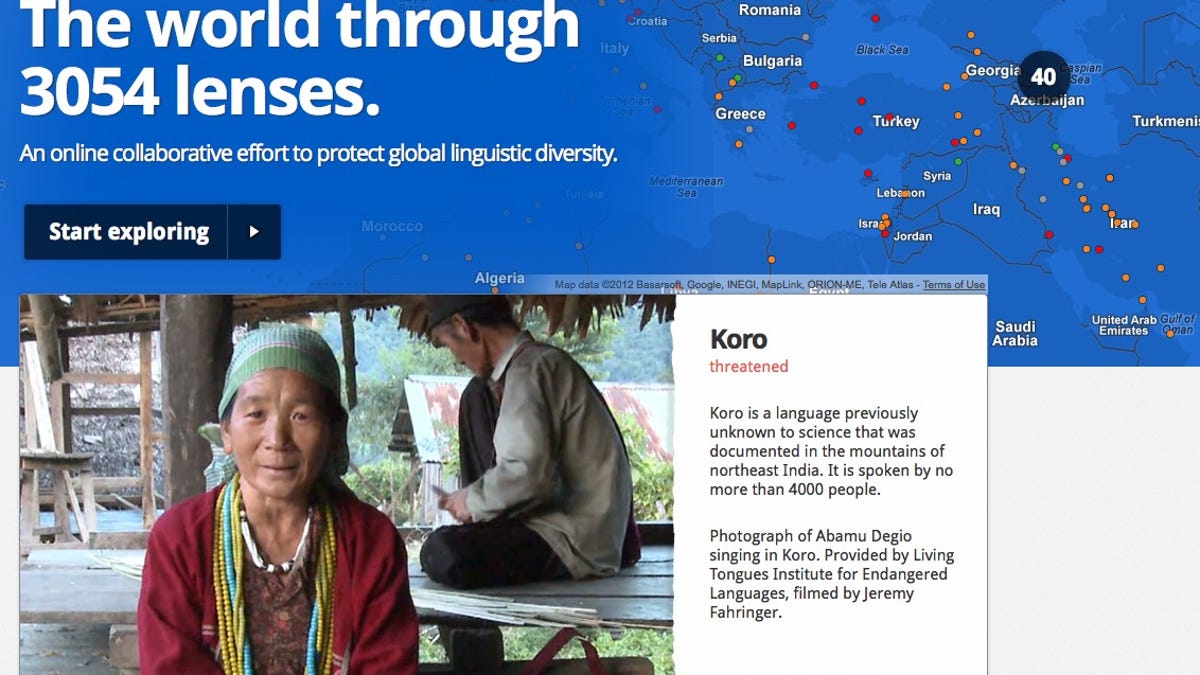Google confronts extinction of more than 3,000 languages
Google-backed initiative the Endangered Languages Project aims to help preserve the many languages slated to become extinct within the next 100 years.

More than 3,000 languages are on the verge of extinction and Google is trying to do something about it.
Collaborating with scholars, researchers, and language communities, the Web giant launched the Endangered Languages Project today, backed by a coalition called the Alliance for Linguistic Diversity. Through the project Web site, people can learn about the Earth's endangered languages and see what kind of documentation is being created to preserve them.
The diverse languages range from Navajo, which is spoken by only 120,000 people in the Southwest U.S., to Koro, a previously unknown language that was documented in the northeast mountains of India, to Aragonese, which is now spoken by less than 10,000 people on the French border of Spain. An interactive map on the Web site shows that nearly every country in the world has lost languages, including 83 in Guatemala, 149 in Myanmar, and 113 in Sudan.
Here's information that Google posted on its blog about the Miami-Illinois language:
The Miami-Illinois language was considered by some to be extinct. Once spoken by Native American communities throughout what's now the American Midwest, its last fluent speakers died in the 1960s. Decades later, Daryl Baldwin, a citizen of the Miami Tribe of Oklahoma, began teaching himself the language from historical manuscripts and now works with the Miami University in Ohio to continue the work of revitalizing the language, publishing stories, audio files, and other educational materials. Miami children are once again learning the language and--even more inspiring--teaching it to each other.
According to the Endangered Languages Project, only 50 percent of languages spoken today will still be around by 2100 and "The disappearance of a language means the loss of valuable scientific and cultural information, comparable to the loss of a species."
Google aims to bring in technology to help record and preserve these languages. Once it gets the ball rolling, it will be passing the torch to language experts including the First Peoples' Cultural Council and The Institute for Language Information and Technology.
Here's a video about language extinction and the Endangered Languages Project:

